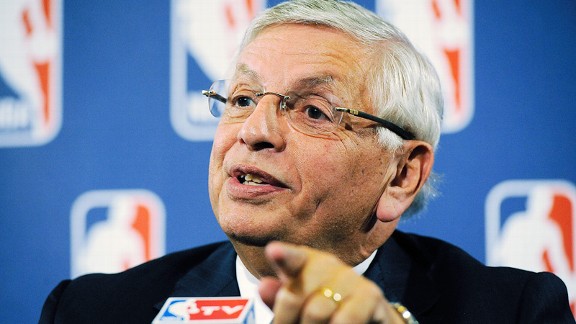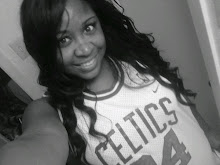Hey, you know what's popular right now? The National Basketball Association. After antagonizing basketball fans for five solid months (the lockout), barely avoiding a potential catastrophe (a nearly canceled season) and suffering a public relations semicatastrophe (the voided Chris Paul trade), the NBA weathered the storm, regrouped and delivered a uniquely entertaining first month. That's right, there's hope for you yet, Lana Del Rey.
You are Daily Visitor #.....
Somethin' To Rock To!!
Thursday, February 2, 2012
NBA Season Review: Time for Change.... Seriously.
Hey, you know what's popular right now? The National Basketball Association. After antagonizing basketball fans for five solid months (the lockout), barely avoiding a potential catastrophe (a nearly canceled season) and suffering a public relations semicatastrophe (the voided Chris Paul trade), the NBA weathered the storm, regrouped and delivered a uniquely entertaining first month. That's right, there's hope for you yet, Lana Del Rey.
Posted by Amile Waters at 10:47 AM
Labels: 2011+NBA+Draft, 2012+NBA+Draft, Lockout
Thursday, October 6, 2011
3 Ways that the NBA talks could demise
If we as basketball fans really are following this NBA collective bargaining closely, Tuesday would have been the day for whiplash.
At long last, there was straight talk about serious movement in the offers. David Stern confidently announced that his owners could have been convinced to offer players 50 percent of basketball revenues -- long thought to have been the magic number. Stern also revealed the owners previously had given up fighting for rollbacks of existing contracts, contracts that are only partially guaranteed and, significantly, a hard cap.
 |
| Seriously, Stern... put a cork in it...seriously. |
In other words, the owners were in the realm of reality on the money issue and had made important concessions on the players' "blood" issues.
And yet ... on that very day, the talks broke apart entirely. Union executive director Billy Hunter says it could be months before the two sides meet again, and the league says it is less than a week from announcing the cancellation of the first two weeks of the regular season.
What is a fan to think? There are three possibilities for what could happen next:
Scenario 1: Bump in the road
Stern says the discussion of splitting BRI in half took place informally, with key personnel from each side agreeing to attempt to go back to their respective groups to try to sell them on the deal. Stern says that while he was talking his owners into it, there was a knock on the door. It was the players, saying their group would not go for a 50/50 deal.
In telling the story, Stern and his deputy, Adam Silver, expressed all manner of surprise and disappointment at this news.
Meanwhile, a union source disputes some of the fine points, saying that first and foremost, it's a major breach of negotiating etiquette to publicly expose the contents of private sidebar conversations. The source also says (and the league denies) that the league did not exactly offer half. Instead, according to the source, it offered to guarantee players 49 percent of revenues, while giving them the right to earn as much as 51 percent of basketball revenues if players could command contracts worth that much.
The union source also maintains that the players did not flatly reject the NBA's offer, as described, but offered another wrinkle in response, to reduce the minimum amount players would be guaranteed from their previous position of 53 percent. (To what, the source wouldn't say.)
However, disgusted as union sources might be with the NBA's handling of the public relations, the fact is that the two sides are not, after all this, very far apart. In fact, they are much closer than they have ever been.
And here's another wrinkle: Two sources in the room agree that the particular players present Tuesday (the list includes Kobe Bryant, Kevin Garnett, Paul Pierce, Theo Ratliff, Maurice Evans, Matt Bonner, Roger Mason Jr., etc.) were particularly strident, more strident than the average player.
Garnett, in particular, has been mentioned as among the uncompromising.
And these are the players who did not play ball with the NBA's offer.
In other words, maybe if the rank-and-file of the players' union were to fully understand the NBA's best offer, the mood would shift.
The NBA says it needs a handshake deal by Monday or it will cancel the first two weeks of the season. Despite all the hard rhetoric, maybe that's still possible. The two sides were hundreds of millions a year apart Tuesday morning. Now they're down to a couple of percentage points. There is a deal to be had, if there's a will to make it happen.
Scenario 2: Now is not the time
Generally, it has been assumed that the passage of time hurts the players, who lose all their NBA income in a lockout. The owners, on the other hand, generally have massive income from other sources and in most cases are losing money by operating their NBA teams anyway.
Billy Hunter says he knows some of the owners have long had the idea of getting players nice and desperate from missed paychecks before forcing them into tough deals.
If feeling the pain of lost income, something that applies to all players and some owners, is the key to getting each side's best offer, maybe this can be a repeat of 1999, with both sides experiencing life without basketball for a few months before the bargaining gets serious enough to end with a handshake.
Scenario 3: Pandora's box
It does not come naturally to the supremely self-assured Stern to express worry or doubt, but he has long expressed the concern that if the players and the owners did not strike a deal to save the full season, it could indeed get very ugly.
To the extent he has explained that comment, he has alluded to the two sides' positions "hardening," something Hunter also has discussed.
But it's more than a hardening. There is also the matter of the courts. These two combatants have a lawsuit active in the Southern District of New York with a hearing set for Nov. 2. They have complaints before the National Labor Relations Board.
And they have a band of agents agitating for decertification, which threatens to not just make talks with the league incredibly complicated and legalistic, but to destabilize the union entirely.
Any one of those legal actions could lead to delays, hassles and indignation.
Most notably, if the union were to deceptive, something Hunter has never been enthusiastic about, it likely would be against the will of the union. Which means players would end up being represented by a lawyer to be named later, likely, sources say, someone who has not been part of the process yet at all. That lawyer presumably would be selected by the agitating agents, and it's anybody's
In other words, there could be an almighty tangle of judges, legal expenses and agitation.
It is entirely possible that a negotiation that is paused over $100 million or so in revenues could disintegrate into $100 million or so in legal fees.
Posted by Amile Waters at 1:34 PM
Labels: 2011+NBA+Draft, Lockout, NBA
Sunday, February 20, 2011
NFL, union meeting for 3rd day with federal mediator
Future Of The League
 With the CBA expiring on March 3, NFLPA executive George Atallah breaks down how the players and the union view the crucial talks.Story
With the CBA expiring on March 3, NFLPA executive George Atallah breaks down how the players and the union view the crucial talks.StoryCopyright 2011 by The Associated Press
Posted by Amile Waters at 11:44 AM
Labels: fantasy +football, Lockout, MFL, NFLPA





